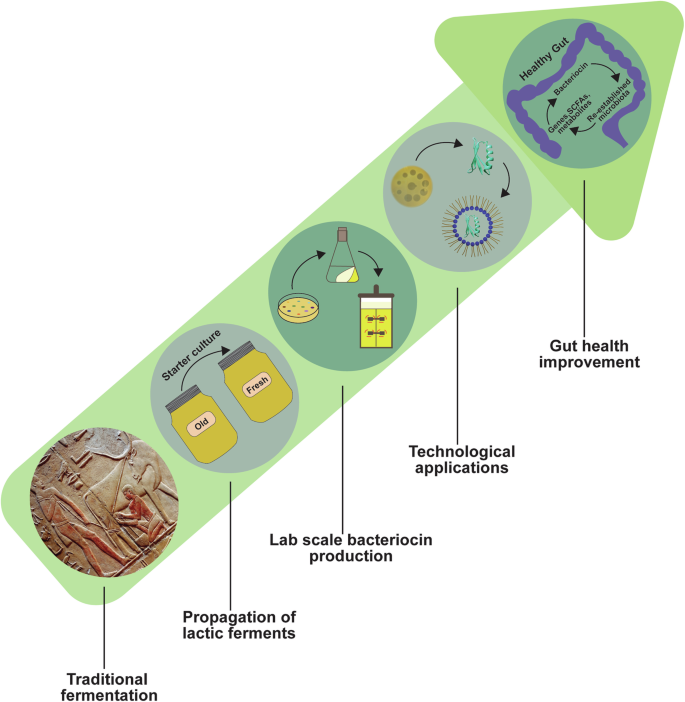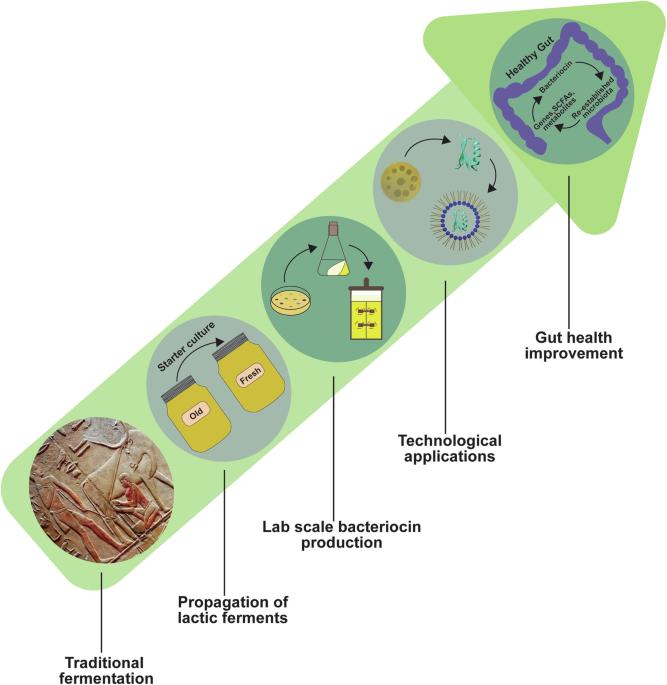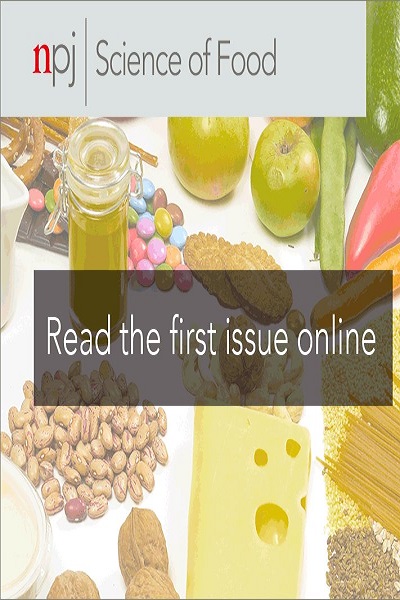了解源自益生菌的抗菌肽:确保食品安全的可持续方法
IF 7.8
1区 农林科学
Q1 FOOD SCIENCE & TECHNOLOGY
引用次数: 0
摘要
保存食物和增加食物价值的做法可以追溯到公元前 1 万多年,当时由微生物驱动的化学反应无意中赋予了发酵食品风味,并延长了其保质期。这一过程不断演变,随着社会的城市化,人们的饮食习惯发生了重大改变,并伴随着零星的食物中毒事件。由于抗生素耐药病原体的增加,COVID-19 大流行的反响加强了对抗生素替代品的寻找,强调探索益生菌源抗菌肽,以减轻人类微生物组的附带损害。这些肽通常被称为 "分子刀",因其与先天微生物菌群的兼容性、对生物工程的适应性、靶向特异性、多功能性和分子水平作用模式的快速性,而成为强效抗菌剂。这篇综述主要介绍了从民族发酵食品中发现的乳酸菌中提取的细菌素,强调了它们的理想特性、作为纳米生物的技术应用以及未来在确保食品安全的现代背景下的潜在应用。本文章由计算机程序翻译,如有差异,请以英文原文为准。


Understanding of probiotic origin antimicrobial peptides: a sustainable approach ensuring food safety
The practice of preserving and adding value to food dates back to over 10,000 BCE, when unintentional microbial-driven chemical reactions imparted flavor and extended the shelf life of fermented foods. The process evolved, and with the urbanization of society, significant shifts in dietary habits emerged, accompanied by sporadic food poisoning incidents. The repercussions of the COVID-19 pandemic have intensified the search for antibiotic alternatives owing to the rise in antibiotic-resistant pathogens, emphasizing the exploration of probiotic-origin antimicrobial peptides to alleviate human microbiome collateral damage. Often termed ‘molecular knives’, these peptides outstand as potent antimicrobials due to their compatibility with innate microflora, amenability to bioengineering, target specificity, versatility and rapidity in molecular level mode of action. This review centres on bacteriocins sourced from lactic acid bacteria found in ethnic fermented foods, accentuating their desirable attributes, technological applications as nanobiotics and potential future applications in the modern context of ensuring food safety.
求助全文
通过发布文献求助,成功后即可免费获取论文全文。
去求助
来源期刊

NPJ Science of Food
FOOD SCIENCE & TECHNOLOGY-
CiteScore
7.50
自引率
1.60%
发文量
53
期刊介绍:
npj Science of Food is an online-only and open access journal publishes high-quality, high-impact papers related to food safety, security, integrated production, processing and packaging, the changes and interactions of food components, and the influence on health and wellness properties of food. The journal will support fundamental studies that advance the science of food beyond the classic focus on processing, thereby addressing basic inquiries around food from the public and industry. It will also support research that might result in innovation of technologies and products that are public-friendly while promoting the United Nations sustainable development goals.
 求助内容:
求助内容: 应助结果提醒方式:
应助结果提醒方式:


